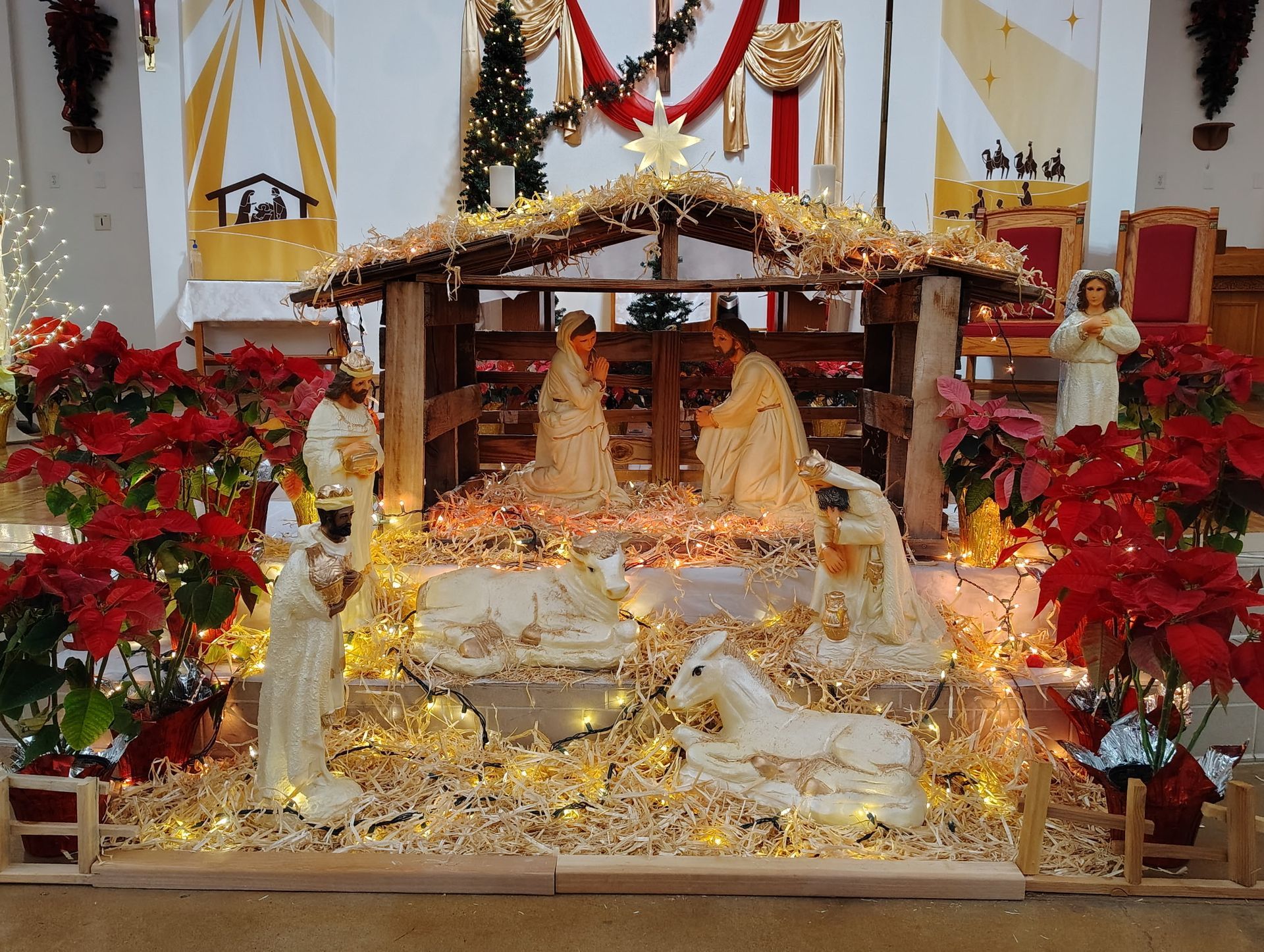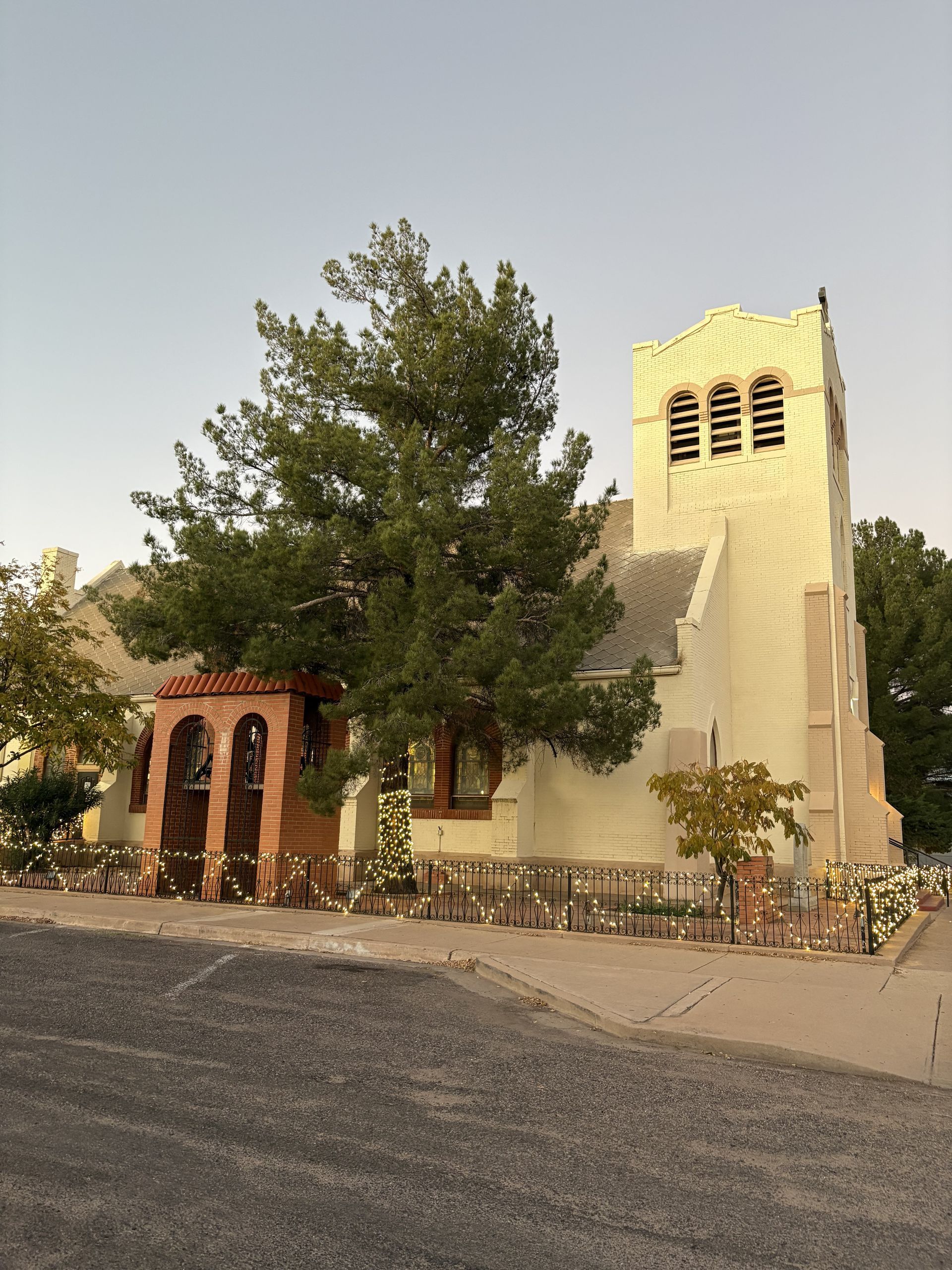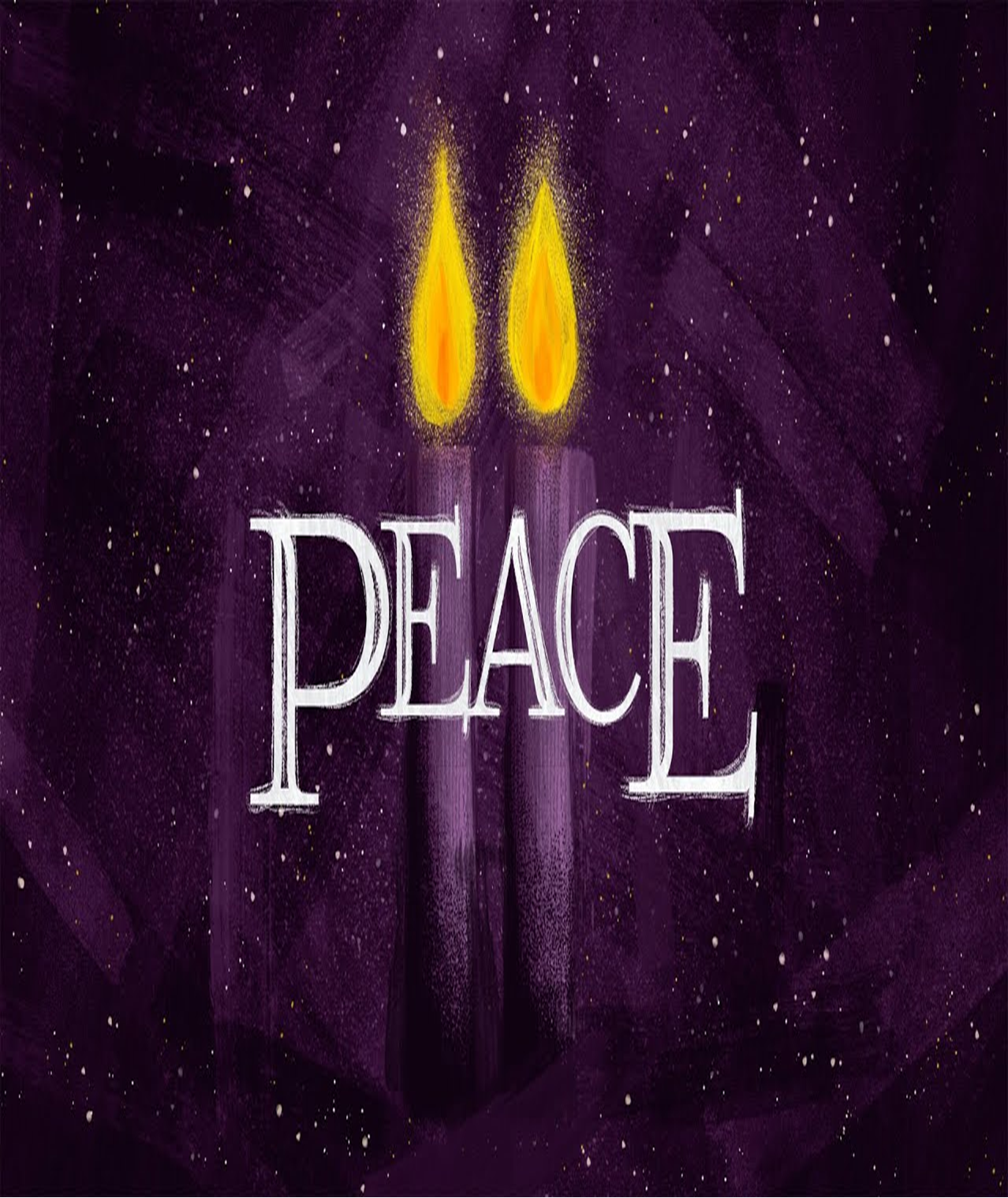The gradual shift from a penitential tone to a festive atmosphere, as evident in our sacred space, signals the joy and warmth of the Feast as it draws near. The Sanctuary is starting to get inundated with hues of red with a handful of yellow poinsettias as well as the Christmas ornaments richly decorated surrounding the church, the images and statues of the Blessed Mother enormously adorned, plus added (bonus) wreaths in a visible location in the sanctuary, the flickering of candles during Mass, meant to heighten the birth of Christ as it comes closer. The third Sunday of Advent, also known as “Gaudete” (Rejoice) Sunday is marked by a deep sense of joy, warmth, gladness, and harmony emanating from the religious dimension of the celebration itself, the story of a God who became flesh in Jesus Christ without diminishing his divine and human natures. The joy of the upcoming feast is directly connected (in fact, the fulfillment of the Emmanuel ‘God-with-us-in-human-form’ prophecies) of Isaiah. The trees (fresh or artificial), the lights, the candles, the crèche, gift-giving, moderate (not heavy) consumption of food, among others, contribute to the build-up of the spirit of Christmas (religious and secular). Christmas sets a joyful tone in our dealings with everyone for the entire year. If God is the source of your joy, then share the excitement of life with God. Make people feel the warmth, the beauty and harmony of the season even amidst the endless list of restrictions. Share the excitement, if not the struggles, of attending the virtual Mass on Sunday. Share the patience learned in waiting for the marvelous gift of the Son of God.
The first verses of the Entrance Antiphon, “Rejoice in the Lord always, again I say, rejoice. Indeed, the Lord is near (Phil. 4:4-5)” resonates well with the theme of joy on the Third Sunday of Advent, also known as Gaudete (“Rejoice”). What does it mean to rejoice always in the Lord during pandemic? Two weeks down the road, we are shifting our attention to a lighter mood and a heightened sense of joy as Isaiah 61: 10-11 shares his sentiments, “I rejoice heartily in the Lord, in my God is the joy of my soul; for he has clothed with a robe of salvation and wrapped me in a mantle of justice, like a bridegroom adorned with a diadem, like a bride bedecked with her jewels. As the earth brings forth its plants, and a garden makes its growth spring up, so will the Lord God make justice and praise spring up before all the nations.” He tells us that when we rejoice in the Lord for whatever circumstances, we are clothed with a garment of salvation and robe of justice that we may become instruments of his healing presence and reconciliation to the brokenhearted and those experiencing terrible loss at this excruciating year. The spirit of the Lord mentioned in the preceding verses is the origin, the source and the wellspring of power and strength.
Truly, the readings today set the tone for a festive celebration, as Paul in the second reading from his first letter to the Thessalonians 5: 16-24 exhorts us, “Brothers and sisters: Rejoice always. Pray without ceasing. In all circumstances give thanks, for this is the will of God for you in Christ Jesus. Do not quench the spirit. Do not despise prophetic utterances. Test everything; retain what is good. Refrain from every kind of evil.” Christians are marked and characterized by the inner joy that radiates in our hearts. In so doing, we draw people to Jesus and to our Church community.
In the Gospel taken from John 1: 6-8, 19-28, we encounter again the figure of John the Baptist, a man sent from God to testify to the light, which defines his humble mission. Because his lifestyle and message were so attractive, he could easily draw people to him, and would have made a fortune out of it, but when asked who he was, he responded, and did not deny it, that he was not the Christ, the Messiah, neither was he Elijah, or the Prophet, but instead echoed a passage in Isaiah 40, “I am the voice of one crying out in the desert, make straight the way of the Lord.”
He describes himself as the one who prepares the way for the coming Messiah, not the fulfillment of all the prophecies. It attempts to bring us the perfect combination between the Voice and the Word, the Messenger and the Message. The voice is short-lived, affecting only the ear, and empty without the Word; the Word is eternal, reaching right to the heart, and giving the Voice its purpose and power. John is the oil lamp, Christ the light from which it is lit. John the Baptist is a witness, a martyr to the truth by his own right. In any court trial, no one can become a state witness unless that person had been there during the incident.
Before you become a witness, you must first live the truth. The voice is dependent on the message/word. They have no voice unless they have already welcomed the word. John’s witness was the same in his message and in his life. The saying holds true, nowadays, people no longer listen to teachers, but witnesses. Talk is cheap. The Baptist’s humility is a clear sign. Without a word, a voice has no meaning, without a flame a lamp is unlit, without water, a flower is dead. Once brought to life, each voice, each lamp, each flower has its own distinctive beauty of expression. The Baptist’s task was to proclaim the truth in its fullness, and in this, he found his identity.
Similarly, the candles in the wreath make little sense without the flame, if they remain unlit during the liturgy. As the week progresses, light increases, pushing out darkness, with another candle lit until all four are burning. The symbolism of the Advent candle is not in the color but in the flame. The Voice, in this case, the ministry of John the Baptist, has no meaning apart from the Word. Our souls, our lives, are devoid of any direction without God. Religion without a sense of joy and adventure lack an essential factor.
As we make final preparations to again welcome the Christ, celebrate his birth in our community, may we be the next John the Baptist whose role is to point away from oneself to the One who is to come. Amen.



